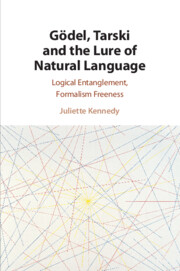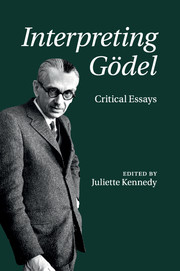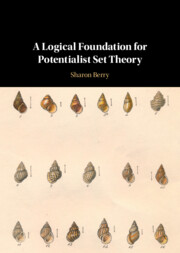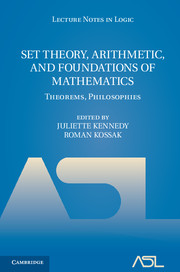Gödel, Tarski and the Lure of Natural Language
Is mathematics 'entangled' with its various formalisations? Or are the central concepts of mathematics largely insensitive to formalisation, or 'formalism free'? What is the semantic point of view and how is it implemented in foundational practice? Does a given semantic framework always have an implicit syntax? Inspired by what she calls the 'natural language moves' of Gödel and Tarski, Juliette Kennedy considers what roles the concepts of 'entanglement' and 'formalism freeness' play in a range of logical settings, from computability and set theory to model theory and second order logic, to logicality, developing an entirely original philosophy of mathematics along the way. The treatment is historically, logically and set-theoretically rich, and topics such as naturalism and foundations receive their due, but now with a new twist.
- Presents Gödel's and Tarski's mathematical research in a new light, emphasising previously neglected aspects of their work
- Provides an overview of the current state of logical research in many different areas
- Contributes to important contemporary debates in the philosophy of logic and mathematics, including naturalism and foundations
Reviews & endorsements
'Kennedy creatively embeds Gödel's ideal of 'formalism freeness' into myriad results in contemporary logic and foundations of mathematics, offering novel historical reconstructions of Tarski and Turing. A cutting-edge work of philosophy that synthesizes, while going beyond, our current ideas about foundations.' Juliet Floyd, Boston University
Product details
August 2022Paperback
9781108940573
199 pages
228 × 152 × 10 mm
0.3kg
Available
Table of Contents
- 1. Introduction
- 1.1 The Syntax/Semantics Distinction
- 1.2 Our Logical Pluralism
- 1.3 Formal vs Linguistic Semantics
- 2. Formalism Freeness and Entanglement: Definitions
- 2.1 Precedents
- 2.2 Entanglement and Formalism Freeness: Varieties
- 2.3 A Simple Preference for Semantic Methods?
- 3. Computability: the Primary Example
- 3.1 On Adequacy
- 3.2 Different Notions of Computability Emerge in the 1930s
- 3.3 The 'Scope Problem'
- 3.4 Turing's Analysis of Computability
- 3.5 Gödel's Reaction to Turing's Work at the Time
- 3.6 Coda: a Word About Deviant Encodings
- 4. Gödel and Formalism Independence
- 4.1 Gödel on Formalism
- 4.2 Episodes of Formalism Independence in Gödel's Writings
- 4.3 Gödel's Princeton Bicentennial Lecture
- 4.4 Implementation
- 4.5 Logical Autonomy?
- 5. Tarski and 'the Mathematical'
- 5.1 'The Mathematical', Definable Sets of Reals, and Naïve Set Theory
- 5.2 Tarski's Naturalism
- 5.3 Squeezing First Order Definability
- 5.4 Tarski and Logicality
- 5.5 In Sum: Parataxis
- 5.6 Coda: an Improvement of McGee's Theorem
- 6. Model Theoretic Aspects
- 6.1 Abstract Elementary Classes
- 6.2 Patchwork Foundations, On-Again-Off-Again-Sim and Implicit Syntax
- 6.3 Implicit Syntax, Implicit Logic
- 6.4 A Remark on Set Theory
- 6.5 Symbiosis
- 6.6 Coda: Symbiosis in Detail
- 7. On the Side of Natural Language.





